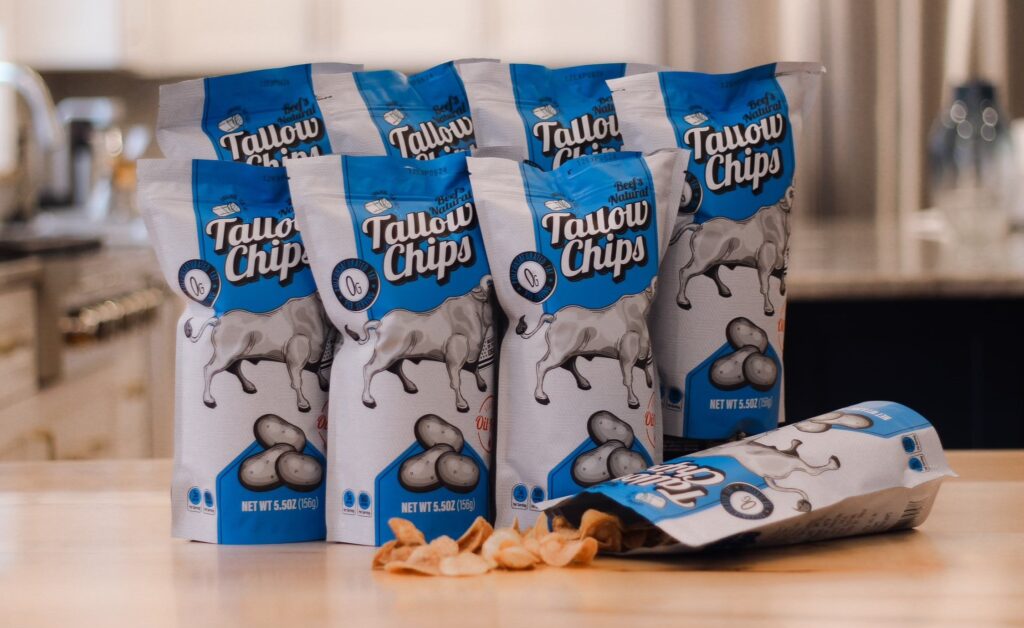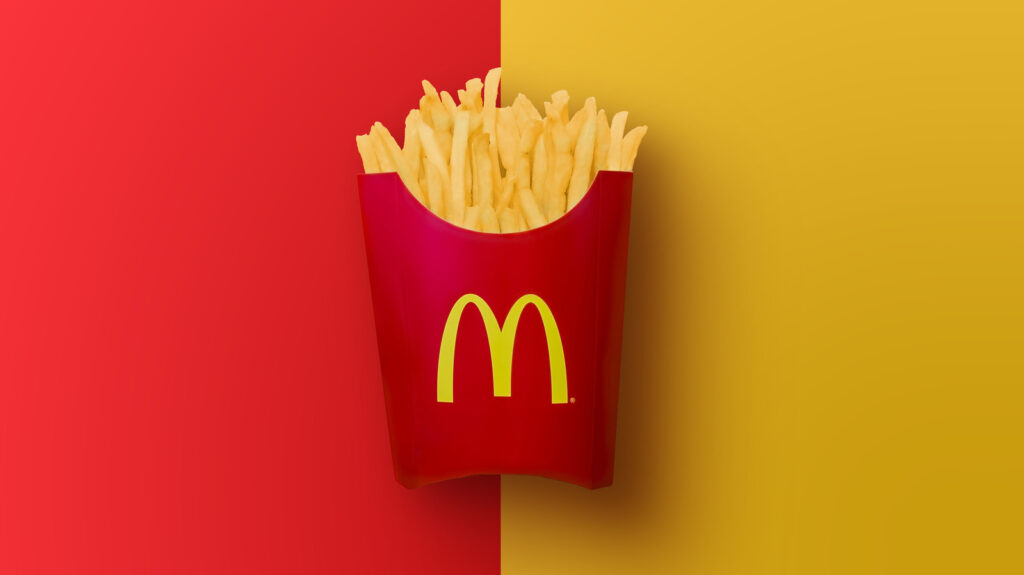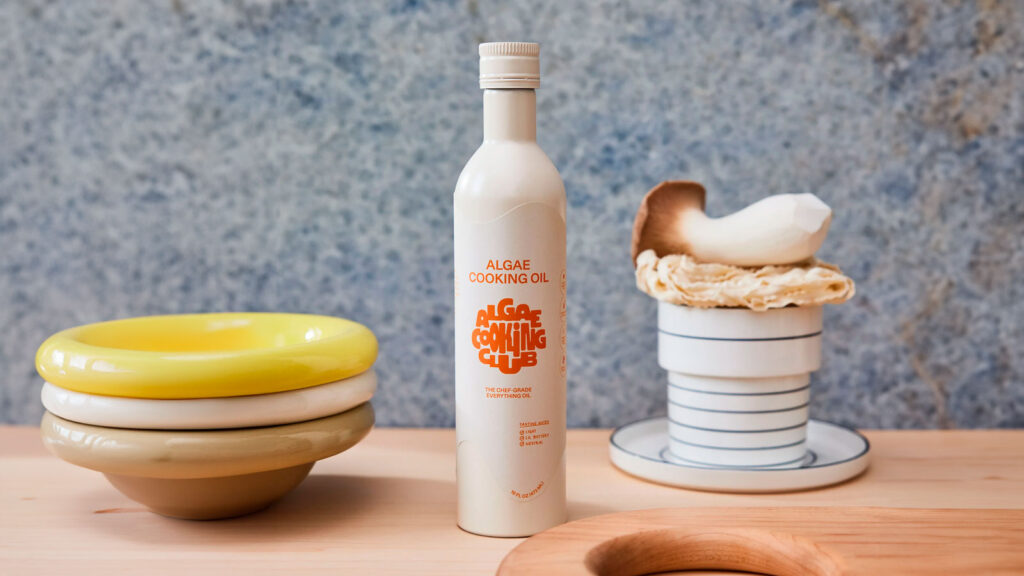The Beef Tallow Trend is Bad for the Planet – Why’re We Doing This?
6 Mins Read
Beef tallow is on a resurgent streak, thanks in part to the apprehension against seed oils. But have we forgotten about the planet?
If you, like me, grew up outside America, but still loved going to McDonald’s as a kid, the fries were probably why. There was something about those skinny, sometimes limp, always-perfectly-golden pieces of potato that would always leave you wanting more.
But I couldn’t – and still can’t – eat these famed fries when I visited their home country. This is because, for decades, McDonald’s in the US cooked its fries in beef tallow, a rendered beef fat. And even though it later switched to vegetable oil, to this day, it uses a small amount of ‘beef flavouring’ – no one really knows what that contains – when pre-frying its potatoes at its factories.
The fast-food giant says this ensures “the great-tasting and recognisable flavour” of its “world-famous fries”. At the turn of the century, McDonald’s was actually sued by customers and ordered to pay out $10M for misleading them about the use of tallow.
In the years since, vegetable oils have dominated the food landscape. In 2022, US imports of these oils reached nearly $11B, and in the last 20 years, the production of vegetable oils has doubled globally.
But then came the seed oil crash. Concerns over specific fatty acid content, oxidisation and smoke points, and ultra-processing have led consumers away from these fats, in pursuit of ‘cleaner’, better-for-them alternatives. This has coincided with the rise of fats like Zero Acre’s fermented oil, but also culminated in a resurgence of beef tallow. In the case of the latter, though, planetary concerns don’t seem to be too high on the priority list for consumers, and that’s a problem.
The nutritional argument

The beef with seed oils has led some brands to proudly display ‘no seed oil’ labels on their packaging. As highlighted by Andrea Hernández’s Snaxshot newsletter, tortilla chip maker Ancient Crunch’s Masa Chips have a neat ‘0g seed oil’ label front-of-pack. Beefy’s Own chooses to go with ‘vegetable oil free’ on its Tallow Chips packaging. Rosie’s Chips, meanwhile, doesn’t want to leave either out. ‘No vegetable or seed oil’ appears bang in the centre of the pack, encased in a golden star so you don’t miss it.
Even new players like Jesse & Ben’s are banking on the seed-oil-free movement, promising customers its fries will be cooked in either avocado oil or grass-fed beef tallow (more on the latter later). What’s the fuss with beef tallow, then? Like McDonald’s, all these brands will tell you that this imparts lots of good flavour to their food products. Because beef tallow has a high smoke point, it also doesn’t oxidise as easily. Plus, it’s solid at room temperature and lasts a long time.
Proponents of beef tallow also say that it contains the ‘good’ kinds of saturated fat and natural trans fat. Going down the rabbit hole of nutrition reserach about fats can be mind-boggling, and different studies will tell you different things. But one thing we do know is that we’re eating too much of it – in the US, one study suggests saturated fat makes up nearly 12% of calorie consumption, despite the national nutrition guidelines recommending Americans to keep this under 10%.

The American Heart Association, meanwhile, has an even lower threshold of 5%. This is because historically, these fats have been linked with an increased risk of heart disease, which kills an American every 33 seconds. But recent research has blurred that link, though even these studies acknowledge that replacing saturated with polyunsaturated fats can reduce the risk of heart disease.
As for trans fats, these have been labelled by many health experts as the worst kind of fat there is – but some argue that naturally occurring trans fats are okay, if in moderation.
Vegetable oils have a much higher concentration of unsaturated fats (around 80%), while beef tallow has only about 40%, according to the USDA. And nearly half of the latter is saturated fat, with the major fatty acid being palmitic acid. This has been known to raise LDL (or bad) cholesterol levels – beef tallow has 109mg of cholesterol per 100g.
Palmitic acid also affects your metabolism negatively, a charge also levelled at seed oils. The argument against these vegetable oils stems from oxidation and the presence of linoleic acid. Some say this acid oxidises 40 times faster than saturated fat, and can become ‘toxic’ and cause a host of diseases, including inflammation. Seed oils are criticised for being overly processed too, which means they sometimes contain artificial trans fats.
Vegetable oils themselves, though, came on the scene as heart-healthy alternatives to animal fats like tallow. Plus, they also have a much higher concentration of micronutrients like vitamins and minerals than beef tallow.
The climate conundrum of beef tallow

So, while people will continue to debate the health credentials of these different oils and fats, the conversation about the climate seems to have gone by the wayside. One estimate suggests that beef tallow generates 11.92kg of carbon per kg, which would place it at the top end of the list of foods with the highest GHG emissions.
Beef itself is the most heavily polluting food group on the planet, emitting twice as many greenhouse gas emissions as the next on the list (dark chocolate). Even the meat from dairy herds, which make up a minority of current beef production, has a massive climate footprint, appearing fourth on the list.
Cattle ranching to produce beef and its derivatives like tallow and gelatine is the top driver of Amazon deforestation (accounting for 80%). And according to the WWF, deforestation from cattle ranching releases 340 tonnes of CO2 annually, making up 3.4% of global emissions.
In its analysis of different fats, Zero Acre – which feeds microbes on rain-fed sugarcane plants to produce its oil – suggests that the environmental impact of beef tallow varies quite a bit. If sourced from factory-farmed beef, it emits high amounts of greenhouse gases and uses a lot of water. But, based on a life-cycle analysis by White Oak Pastures, it claims that regeneratively farmed tallow may be as sustainable as its own fermentation-derived oil.
The food brands mentioned above want you to know that their beef tallow is sourced from grass-fed beef, that term carries its own problems. One study last year revealed that pasture-raised cows that feed on grass actually represent 20% higher GHG emissions than grain-fed cattle. When accounting for soil carbon sequestration and carbon opportunity costs, the total carbon footprint of pasture-raised operations was 42% higher.

Companies that present beef as ‘climate-friendly’ are, frankly, engaging in a bullshit exercise. Beef is terrible for the planet – however you raise it. So are products derived from it, such as tallow. But that is falling on deaf ears. Even Zero Acre is part of a collaboration with Miami eatery Los Felix (a recipient of the Michelin Green star), which combines the fermented oil with beef tallow to make tortilla crisps.
For all intents and purposes, Zero Acre’s oil is definitely planet-friendly, as is the microalgae oil from Algae Cooking Club (which has the backing of a three-Michelin-starred chef, if we’re counting). Many others are working on sustainable alternatives to animal fats – a walking reminder that products like beef tallow, whether they’re factory-farmed, grass-fed, or regeneratively raised, need replacing.
Beef tallow may have a high smoke point, but it’s also a huge reason why there’s smoke coming out from the planet.




